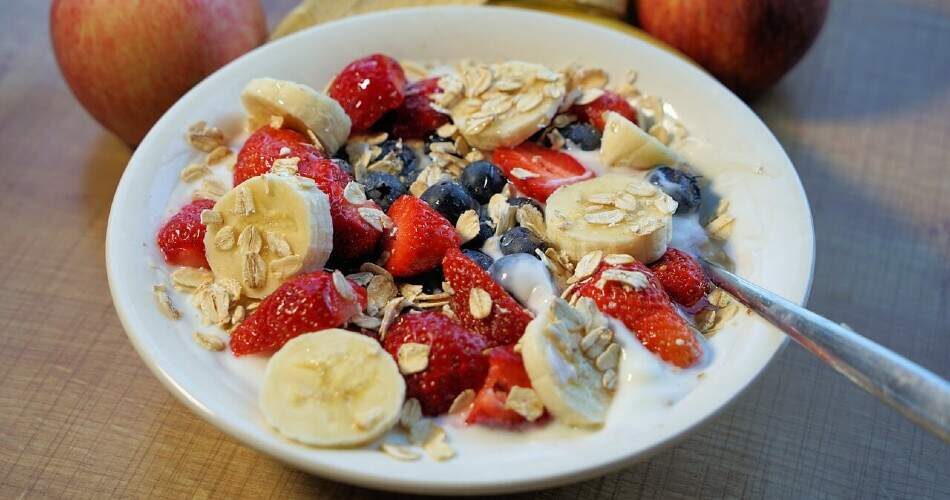Estimated reading time: 4 minutes
Probiotics and prebiotics are important topics in nutrition nowadays. Both probiotics and prebiotics can support useful bacteria and other organisms in the gut. These food components help promote beneficial bacteria and create an environment in which microorganisms can grow.
Probiotics are found in many fermented foods, such as yogurt, sauerkraut, and tempeh. Prebiotics are found in high-fiber foods, such as fruits, vegetables, and whole grains.
Although probiotics and prebiotics sound similar, these supplements have different roles in the digestive system (or gut).
PROBIOTICS
The word ″probiotic″ comes from the Greek (″promotion of life″). Probiotics are foods (or supplements) that contain live bacteria in sufficient quantities to provide health benefits. Probiotics are the ″good″ bacteria you can eat from food or supplements. The administration of probiotics can help balance the different types of bacteria in the intestine, which in turn promotes the health of the intestine.
Probiotics are found in many fermented foods. Fermentation is a natural process in which bacteria turn sugars and other carbohydrates from food into acids. The most common source of probiotics is fermented dairy products, such as yogurt, kefir, and certain fermented cheeses (Gouda). One of the most common strains of probiotic bacteria in the gut is Lactobacillus acidophilus, which is found in yogurt. Probiotics are also found in fermented vegetables (such as pickles, kimchi, olives), soy products, and kombucha drinks.
PREBIOTICS
Prebiotics are fibers that feed healthy intestinal bacteria and are important for maintaining a balanced gut. Prebiotics are the compounds of many high-fiber foods that you eat. While humans cannot break down the fiber they eat into foods such as fruits, vegetables, beans, and whole grains, gut microbes go through a process called ″fermentation″.
Prebiotic compounds are found in bananas, onions, garlic, leeks, asparagus, artichokes, tomatoes, plums, apples, nuts, soy, and whole-wheat foods. Inulin is a prebiotic and a type of soluble fiber. It is found naturally in large amounts in chicory root, as well as in smaller amounts in foods such as artichokes, onions, and a type of Mexican turnip called jicama. Inulin is added to some foods because it improves gut health without changing the taste or texture of food.
BENEFITS AND SIDE EFFECTS OF PROBIOTICS
Probiotics can be beneficial in the following areas:
- Improve digestive health and mental health
- Improve the symptoms of irritable bowel syndrome
- Decrease the need for antibiotics, incidence of ventilator-assisted pneumonia, gestational diabetes, vaginal infections, eczema
People with Crohn’s disease and a weakened immune system have a higher risk of side effects when taking probiotics.
Research into the side effects of long-term use of probiotics requires further investigation.
BENEFITS AND SIDE EFFECTS OF PREBIOTICS
The benefits of prebiotics are related to the benefits of probiotics. Prebiotics support a healthy gut, and thus better digestive health, fewer health problems related to the use of antibiotics.
- Support immunity, digestive health, bone density, weight management, and brain health
- Improve calcium absorption
- Support the probiotic growth of intestinal bacteria, promoting digestion and metabolism
Research into the side effects of prebiotic use requires further investigation.
ADMINISTRATION OF PROBIOTIC SUPPLEMENTS
Probiotic supplements are based on pills, powders, or liquids that contain beneficial live bacteria. Some probiotic supplements are designed to transport bacteria to the large intestine for better effects, while others do not pass through stomach acid.
Some people should not take probiotics or who may experience side effects after taking them, such as people with bacterial overgrowth of the small intestine or people who are sensitive to the ingredients in the supplement.
However, the right strains of probiotics can be incredibly beneficial for some people. It depends on the type of strain, the product formula, the quality of the product, and the storage.
As with all supplements, it is recommended that you consult your doctor before use.
ADMINISTRATION OF PREBIOTIC SUPPLEMENTS
Research on prebiotic supplements is still in its infancy and many of the benefits are still largely theoretical. For these reasons and because prebiotics can be easily found in many fruits and vegetables, it is best to consume prebiotics naturally whenever possible.
There is currently no evidence that concomitant administration of probiotics and prebiotics is harmful. However, people who have chronic or serious illnesses should avoid probiotic or prebiotic supplements, unless a doctor recommends otherwise.
If you want to find out about brain cells, check out our article on this topic: Older people can still produce new brain cells.
[Photo from Pixabay]
